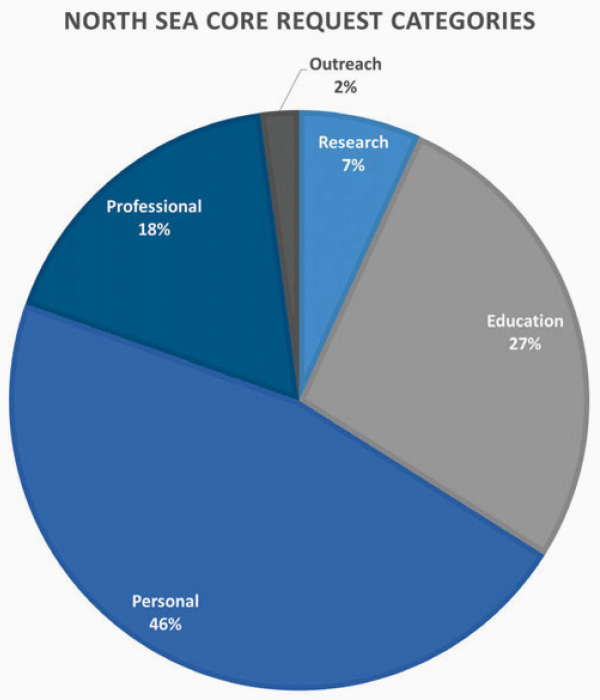The Undervalued Asset: Exploring The Critical Contributions Of Middle Managers

Table of Contents
The Bridge Between Strategy and Execution
Middle managers are the linchpin connecting high-level strategic visions with the day-to-day realities of team execution. They're not just cogs in the machine; they're the engine that drives it forward.
Translating Vision into Action
Middle managers are responsible for interpreting high-level strategic goals and translating them into actionable plans for their teams. This crucial role involves several key responsibilities:
- Breaking down complex objectives: They dissect large, overarching goals into smaller, manageable tasks that individual team members can understand and tackle.
- Effective resource allocation: Middle managers allocate resources – time, budget, personnel – efficiently to ensure projects stay on track and within budget.
- Setting clear expectations and deadlines: They establish clear expectations for performance, setting realistic deadlines and providing the necessary support to meet those targets.
- Progress monitoring and strategy adaptation: They constantly monitor progress, identifying potential roadblocks and adapting strategies as needed to keep projects moving forward. This often involves problem-solving and decision-making based on real-time feedback.
Facilitating Communication and Collaboration
Middle managers act as a vital communication conduit, ensuring information flows smoothly between upper management and lower-level employees. This two-way communication is crucial for organizational success:
- Upward communication: They effectively communicate employee concerns, feedback, and suggestions to upper management, ensuring that the voice of the team is heard.
- Downward communication: They clearly communicate organizational strategies, updates, and changes to their teams, ensuring everyone is aligned and informed.
- Horizontal communication: They foster collaboration across different teams and departments, breaking down silos and promoting a more integrated approach to problem-solving.
Driving Employee Engagement and Development
Highly engaged employees are the backbone of any successful organization. Middle managers play a critical role in fostering this engagement and driving employee development.
Mentoring and Coaching
Middle managers are often the primary mentors and coaches for their team members. They play a vital role in:
- Providing regular feedback: They provide consistent and constructive feedback, helping employees understand their strengths and areas for improvement.
- Identifying training and development needs: They identify opportunities for professional development, recommending training programs or mentoring opportunities to enhance employee skills.
- Mentoring and coaching for growth: They act as mentors, guiding employees toward their career goals and providing support and encouragement along the way.
- Creating a positive work environment: They foster a positive and supportive team culture where employees feel valued, respected, and motivated.
Boosting Morale and Productivity
Middle managers directly influence employee morale and productivity through their actions and leadership style:
- Recognition and rewards: They recognize and reward accomplishments, motivating employees and fostering a sense of appreciation.
- Conflict resolution: They effectively address concerns and resolve conflicts fairly, creating a more harmonious work environment.
- Building trust and respect: They build trust and respect within their teams, leading to increased cooperation and commitment.
- Promoting teamwork: They actively promote teamwork and collaboration, encouraging a supportive and collaborative team dynamic.
Overcoming Challenges Faced by Middle Managers
While middle managers contribute significantly to organizational success, they often face unique challenges.
Conflicting Priorities and Demands
Middle managers frequently juggle multiple priorities and demands from both upper management and their teams. Effective strategies for managing these challenges include:
- Prioritization techniques: They need strong prioritization skills to focus on the most critical tasks first.
- Time management: Effective time management is essential to balance competing demands and meet deadlines.
- Stakeholder communication: Clear communication with all stakeholders is crucial to manage expectations and avoid misunderstandings.
Lack of Recognition and Support
Middle managers often feel undervalued and unsupported. Organizations can address this by:
- Providing professional development: Invest in training and development opportunities to enhance their skills and capabilities.
- Offering regular feedback and recognition: Acknowledge their contributions and provide regular feedback to show appreciation.
- Empowering decision-making: Empower them to make decisions within their areas of responsibility.
- Creating a supportive work environment: Foster a culture of support and collaboration to help them succeed.
Conclusion
Investing in middle management is not simply a cost; it’s a strategic investment in organizational success. By recognizing the crucial contributions of middle managers, acknowledging their challenges, and providing them with the necessary support and resources, organizations can unlock their full potential, fostering increased employee engagement, improved performance, and ultimately, a more successful and thriving business. Don't undervalue this vital asset—empower your middle managers and watch your organization flourish. Invest in your middle management today and reap the rewards of a stronger, more effective organization.

Featured Posts
-
 Le Tramway Dijonnais S Etend Approbation Du Projet De 3e Ligne
May 10, 2025
Le Tramway Dijonnais S Etend Approbation Du Projet De 3e Ligne
May 10, 2025 -
 Elizabeth Stewart X Lilysilk A Spring Capsule Collection Of Sustainable Luxury
May 10, 2025
Elizabeth Stewart X Lilysilk A Spring Capsule Collection Of Sustainable Luxury
May 10, 2025 -
 Uk Tightens Visa Rules Impact On Nigerian And Pakistani Applicants
May 10, 2025
Uk Tightens Visa Rules Impact On Nigerian And Pakistani Applicants
May 10, 2025 -
 Reaktsiya Stivena Kinga Na Diyi Maska Ta Trampa
May 10, 2025
Reaktsiya Stivena Kinga Na Diyi Maska Ta Trampa
May 10, 2025 -
 India Stock Market Today Sensex Nifty 50 Close Choppy Trading Session
May 10, 2025
India Stock Market Today Sensex Nifty 50 Close Choppy Trading Session
May 10, 2025
